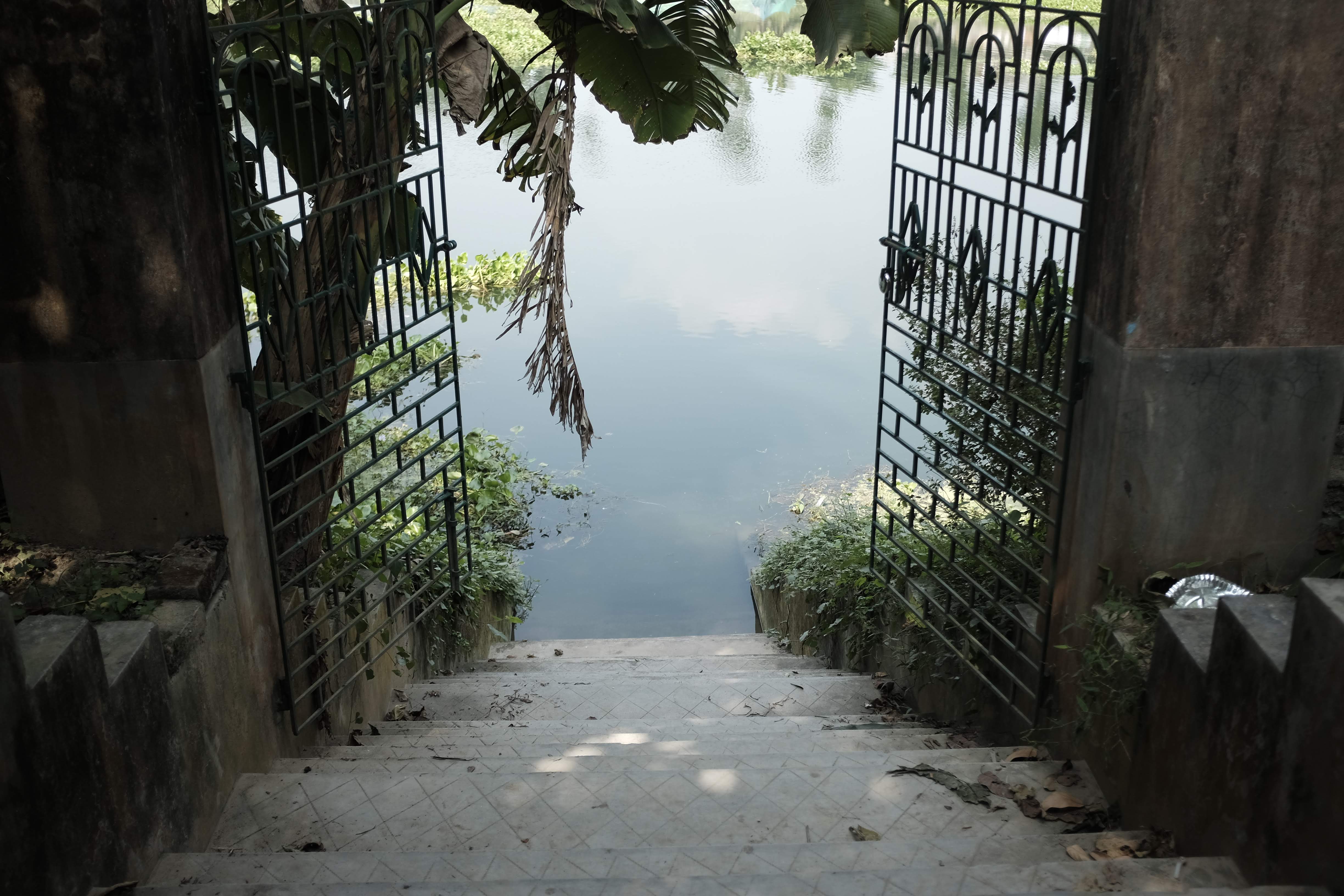"I will see the enchanting Ananda Sukhada Kunja"
Kalyana Kalpataru / Ucchasa (Emotion) / Song 16

Kalyana-kalpataru, the name of the Thakura's first songbook, translates to "The Desire Tree of Auspiciousness." At the onset of this special songbook, the Thakura describes a remarkable journey he has taken within his mind: he has personally traveled to the spiritual world to retrieve this desire tree and introduce it to the material world for our benefit.
In the abode of Sri Vaikuntha there is a supremely auspicious forest. In that forest, there are innumerable beautiful desire trees.
Among those desire trees, this kalpataru raja or king of auspicious desire trees is situated. This tree eternally remains in that transcendental abode.
This beautiful wish-fulfilling tree has three branches: namely upadesa (instruction), upalabdhi (realization), and ucchasa (emotion).
The blooming flowers of pure devotional service beautify this tree. It is filled with countless auspicious fruit. Any sober person who takes shelter of this tree will certainly receive auspicious fruit in the form of devotional service to Krsna.
By the mercy of my spiritual master, I was able to bring this wonderful tree from the spiritual world. (Verses 13-18).
Then, the Thakura evidences his extreme dainya:
Please listen. O devotees, while bringing this tree through my harsh mind, its beauty became somewhat diminished.
Therefore, all of you should become gardeners of this tree so that by pouring water, in the form of faith, it will again become beautiful. (Verses 19-20).
The Thakura wishes us to water this tree that he has kindly brought before us free of charge, and in so doing, experience the fruit it has to offer on its various branches.
Toward the end of the songbook, Srila Bhaktivinoda Thakura includes a series of bhajanas which specifically address the sweet result of residing in, wandering around, and performing one's bhajana in Sri Navadvipa-dhama.
In this particular bhajana, the sixteenth in his section Ucchasa, or emotion, Bhaktivinoda Thakura again begins with a question indicating his intense hankering, or greed (laulyam) for the darsana of Lord Nityananda and Sri Caitanya Mahaprabhu, which we also encounter in his bhajana directly preceding this one. In the present one, he writes:
O my Lords, Sri Gauranga and Sri Nityananda, when will You two brothers bestow the highest mercy upon this fallen soul by manifesting Yourselves before me? (Verse 1).
This theme—that one can attain the lotus feet of Sri Caitanya Mahaprabhu by living in Sri Navadvipa-dhama is one the Thakura also emphasizes in his Sri Navadvipa-dhama-mahatmya, wherein he writes, "Whoever lives in the dhama with firm faith will attain the feet of Gaura." (Sri Navadvipa-dhama-mahatmya, Vrajaraj Press, p. 38).
However, it does not end here. In his bhajana, the Thakura next describes what will happen when Their Lordships do appear before him:
By the strength of Sri Sri Gaura-Nitai's mercy, I will be able to see the beauty of Braja within Sri Navadvipa. I will also see the enchanting Ananda Sukhada Kunja, which is very pleasing to the eyes.
Next to this kunja is Sri Lalita-kunda, which is surrounded by hundreds of golden altars. Sri Sri Radha and Krsna continually enjoy Their transcendental pastimes at this place.
The sakhis assist Their Lordships Radha and Krsna in Their pastimes and thus experience transcendental happiness from their various services. This maidservant, under the instruction of the sakhis, will run here and there, for the sake of Their service. (Verses 2-4).
In several of his bhajanas, the Thakur refers to his eternal identity as Kamala Manjari. In his Gitamala songbook, he writes:
This maidservant has a complexion just like lightning, and she is wearing a sari which has star-like decorations all over it. My name is Kamala Manjari. Eternally appearing to be only twelve-and-a-half years of age, I always live within the abode of Svananda-sukhada-kunja. (Gitamala, Siddhi Lalasa Song 8).
In Sri Navadvipa-dhama-mahatmya, the Thakura provides the very same roadmap as he does in this bhajana for attaining such confidential service to the Divine Couple:
If one worships Gauranga, all one's wicked sentiments will be uprooted, & very soon one will attain Radha & Krsna in Vrndavana. That person will attain their spiritual body and serve the Divine Couple in a secluded grove under the shelter of the sakhis. (Sri Navadvipa-dhama-mahatmya, Vrajaraj Press, p. 44).
And later in the same book:
When the worship of Gauranga in dasya-rasa reaches full maturity in the heart of the living entity, madhurya-rasa naturally develops in his heart. At that time, one's worship of Gaurahari qualifies him to worship Radha and Krsna in Vrndavana. (Sri Navadvipa-dhama-mahatmya, Vrajaraj Press, p. 80-81).
And just what kind of special service awaits Srila Bhaktivinoda Thakura, or Kamala Manjari?
In the last verse of the bhajana, he pens the happy words:
I will prepare garlands of malati flowers and place them in the hands of the sakhis. The sakhis will put them around the necks of Sri Sri Radha and Krsna, and I will dance joyfully. (Verse 5).